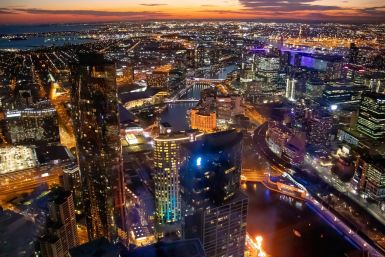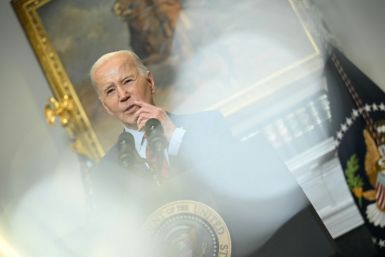PM Gillard: Anzac Day Has Become More Significant Than Australia Day
Australian Prime Minister Julia Gillard said on Wednesday that because of the values that Anzac Day represents, the day has become more significant than Australia Day.
She said in an address at the dawn service in Gallipoli that Anzac Day went beyond its military beginnings and now has meaning to all Aussies, to include migrants like her.
""All of us remember, because all of us inhabit the freedom the Anzacs won for us," said Ms Gillard who is a Welsh migrant.
She pointed out that April 25 has a deeper emotional meaning than January 25, the day Australians commemorate the arrival of the First Fleet. Anzac Day represents for all Australians the deepest national values of mateship, good humour, endurance and bravery, the premier said.
The estimated crowd of about 7,000, made up mostly of Aussie and Kiwi backpackers, arrived as early as Tuesday evening.
"It wasn't forced at the start, we didn't have Anzac Day created by an act of Parliament or because a prime minister or a premier had a bright idea," The Sydney Morning Herald quoted Ms Gillard.
Among those who joined the Gallipoli service were Cardinal George Pell and Corporal Roberts-Smith, a war hero who was awarded the Victoria Cross in Afghanistan. He also read the Ode.
"The connection with the military will always be there for obvious reasons... but more importantly it's about the founding of our Australian values and out Aussie spirit," Mr Roberts-Smith was quoted by The Sydney Morning Herald.
"You can't compare war and sport but what you can compare is what's inside Australians," he added.
Cardinal Pell said that Anzac Day is considered by younger Australians to be the legend of the country because it represents "a devotion to duty and a preparedness to put yourself on the line for what you believe is a good cause."
It was the 97th Anzac Day celebration. Among those who joined the celebration of the Gallipoli landing commemoration were retired soldiers who also approached their centenary.
"They were strangers in a strange land, men who came from the ends of the earth in an enterprise of hope to end a far-off, dreadful war," The Australian quoted Ms Gillard's address to the thousands of Anzac pilgrims.
"We come back, as we will always come back, to give the best and only gift that can matter any more - our remembrance," she said.
Besides the Gallipoli dawn service, other commemoration rites were held in Melbourne and Canberra, as well as at Villers-Bretonneux and Menin Gaye in Ypres, Belgium.
In Melbourne, at the dawn service held amid pouring rain at Elephant Rock on the Currumbin Beach in Gold Coast, Afghanistan veteran Colonel Jason Blain reminded Aussies that it is important to also remember the new Anzacs who made similar sacrifices.
"We ask in return of our fellow citizens, don't regard our service in Afghanistan as being of no worth, the death of our friends and fellow soldiers as having been in vain. It's simply not true," The Australian quoted Mr Blain.
At the Canberra parade, Aboriginal activists sought the recognition of frontier wars fought by colonial Australia and to set aside memorials. The small delegation of about 20 Aborigines who carried flags and banners joined the tail of the Anzac Day parade, behind veterans.
Former Prime Minister Kevin Rudd, who delivered the Anzac Day address at Bulimba Memorial Park in Brisbane, said gallant soldiers who fought Australia's wars bring old values to the country. He described the values as having withstood the test of time, soared above the petty controversies of the day, stood as the country's compass, tested and sure, and helped chart Australia's future course.
"For if it were not so, why do we gather now in thousands upon thousands, and more thousands each year as the distance between now and the time of Anzac passes. We are here because these values of Anzac mean something to us that is real today and they offer hope for tomorrow," Mr Rudd said.
He added that thousands of modern-day Anzacs would return from Iraq, Afghanistan, Timor and other areas of conflict, and Australia's vow is to look at these servicemen and women "who will march in greater and greater numbers in the Anzac parades of the future."





